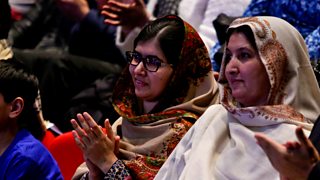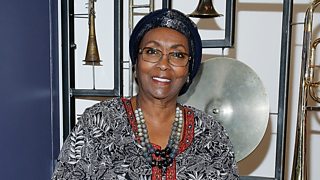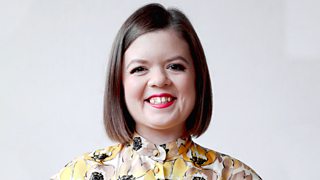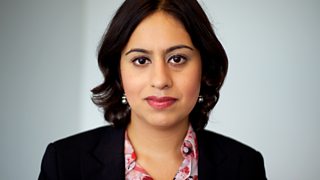Nine things we learned from Malala's Desert Island Discs
Malala Yousafzai is the youngest recipient of the Nobel Peace Prize. She is an activist for female education and her advocacy of this led to an attempt on her life in 2012 by the Taliban in her native Swat Valley in north-west Pakistan, as she returned home after an exam. This murder attempt sparked an international outpouring of support for her and her activism and she was described as "the most famous teenager in the world". She recovered in a hospital in Birmingham, and last year she graduated from Oxford University. She remains a prominent activist for the right to education. Here are nine things we learned from her Desert Island Discs…
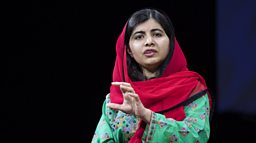
1. Malala believes that small acts can make a big difference
“Virtues like kindness and generosity are taken for granted,” says Malala, “and they're not promoted, and they're not respected. I have learned that small acts and small deeds, though they're small, they look small - you know, just be kind, just smiling at someone - they can have a real impact, and they can actually bring joy and happiness to your life and into the lives of others.
Virtues like kindness and generosity are taken for granted
2. She turned to music for support when she was a student
Malala describes how she listened to Sufi music, the devotional music of Sufism, inspired by the work of the Sufi poets. “I used to listen to these songs in university, when you are sort of on your own,” says Malala. “It's the first time that you have left home, you are not under the supervision of your family and you are learning what it means to be independent and you are learning more about yourself. Sufi songs talk a lot about the connection to God, the connection to that being, the connection to yourself. It just allows you to feel your soul within you. These songs are very powerful. And you don't even need to understand the words and you don't need to understand the poetry. There's just something about it that touches your soul.”
3. She remains an optimistic person, despite conspiracy theories and disinformation
“Within, I think, a month or so [after the attack] people started spreading misinformation: this attack was all planned or blaming my father for it. Then soon this narrative started that this incident had never even happened, and it's all a fake thing,” she says. “It's so hard to process that, because what do I say: ‘Shall I show you the scars on my body? Or shall I show you the medical documents from the hospital?’ But we have reached a point where people would not even believe that. In my real life [as opposed to online] I have not met anyone who has been disrespectful to me, or who has called me fake or anything so that is something that gives me hope. And I do hope that you know, when they meet you in person, their views will change.”
I remember opening my eyes and I was trying to process whether I was alive, or if I was still sort of in that dream, when you are not really dead
4. Her father is a great inspiration
In Malala’s Nobel lecture, she thanked him for “not clipping my wings and letting me fly.” So how would she describe him? “I am lucky that I have an amazing feminist father. I say that he was a feminist before he even knew the word feminist. He was not just preaching about the equality of women, he was actually doing it. He ensured that I got my education, that I am treated the same way as my brothers get treated. There were so many other young girls in Swat Valley [where Malala was born and brought up] who wanted to speak out and who weren't speaking out initially but their brothers and their fathers stopped them from speaking out. What's different in my story is that my father did not stop me. It's as simple as that.”
5. Her father’s childhood shaped how he treated his daughter
“My father always shares this story that he had five sisters, and there were two brothers and he noticed the discrimination with his own two eyes. When his parents would serve food to all the children, the boys would get the bigger piece of meat than the girls... My grandfather educated both the boys but he did not send the girls to school. So for my father the question was: why is it that just because he's a boy, he's getting all these privileges? And he decided that when he’d have his own daughters or daughter, he would make sure that they're not discriminated [against], that she’d get equal amounts of food and chicken and everything that she wants, and that she is sent to school and that she gets her education. For him it was witnessing that gender discrimination with his own eyes that changed him.”
6. From an early age, Malala identified inequality in the world around her
“When I used to walk to school, I used to see many young girls who were not in school,” says Malala of her childhood, attending the school her father founded, “They would be going to other people's houses for domestic labour that they had to do. Many of them would be there on the garbage dumps, and they would be collecting metal pieces from the garbage. And I always had this question that, you know, why is it that I can go to school, but they can't? I started to realise that this, this is not the world we should be living in. If I can go to school, so should everybody else who's around me, and I wanted to do this activism for all children then to go to school.”
7. When she was 10 years old the Taliban arrived in Swat Valley
What was life like under the Taliban? “Basically, it was a life in fear. The Taliban would enter into people's houses, just because... they were just a bit suspicious that these people were against them. And they would kill those people… And their bodies would be hanging there [in the square] with a note saying that nobody can remove this body until 11am or 12pm. So they wanted people to know if anybody removed them, you know, your body shall be here too. It's very difficult to understand that ideology, they literally misuse the name of Islam.”
8. Malala has no memory of the moment when she was shot
“I remember sitting in a school bus talking to my friends, just just talking to the bus driver,” says Malala. “He was doing some magic tricks with a pebble just hiding it. It was appearing and disappearing and I was really fascinated by that. I love magic tricks. [The bus] started driving and I just don't remember anything.“ Malala had been shot by a Taliban gunman. It was 9 October 2012. Because of the severity of her injuries Malala ended up at the Queen Elizabeth Hospital in Birmingham which specialises in treating military personnel. She was in a medically induced coma for a week. “I remember opening my eyes and I was trying to process whether I was alive, or if I was still sort of in that dream, when you are not really dead, and you are trying to get up, but you can't. And I was grateful when I realised I was alive.”
9. Living in Birmingham, she has come to love British sit-coms and the local accent
Malala reveals that Blackadder and Only Fools and Horses are among her favourite TV shows. “How long did it take everyone to adjust [to life in Birmingham]?” asks Lauren to which Malala replies: “Firstly, we had to understand the accent!” And when she was practising the speech that she went on to give at the United Nations she would practise it with a Brummie accent. “Yeah, I love this accent,” she laughs.

